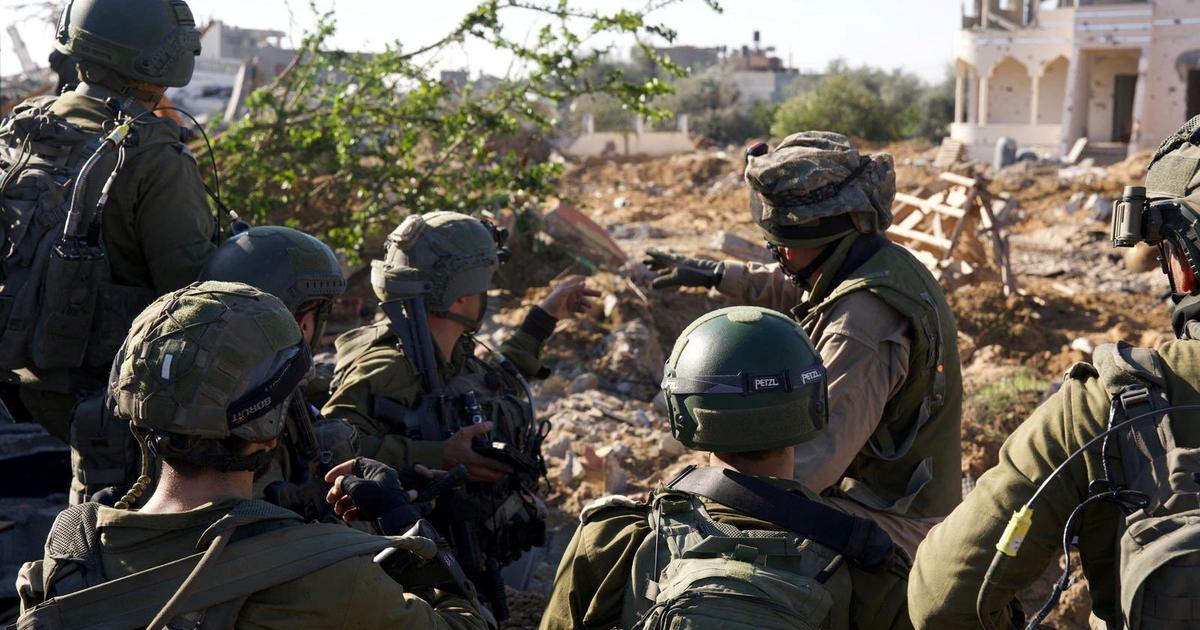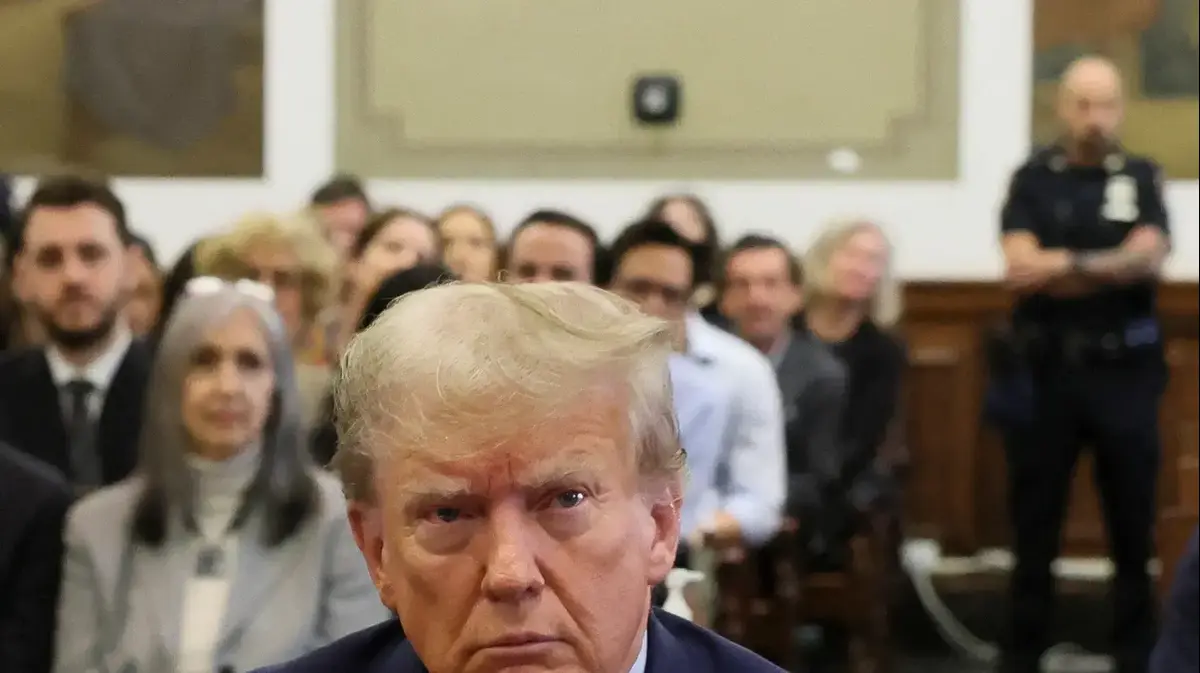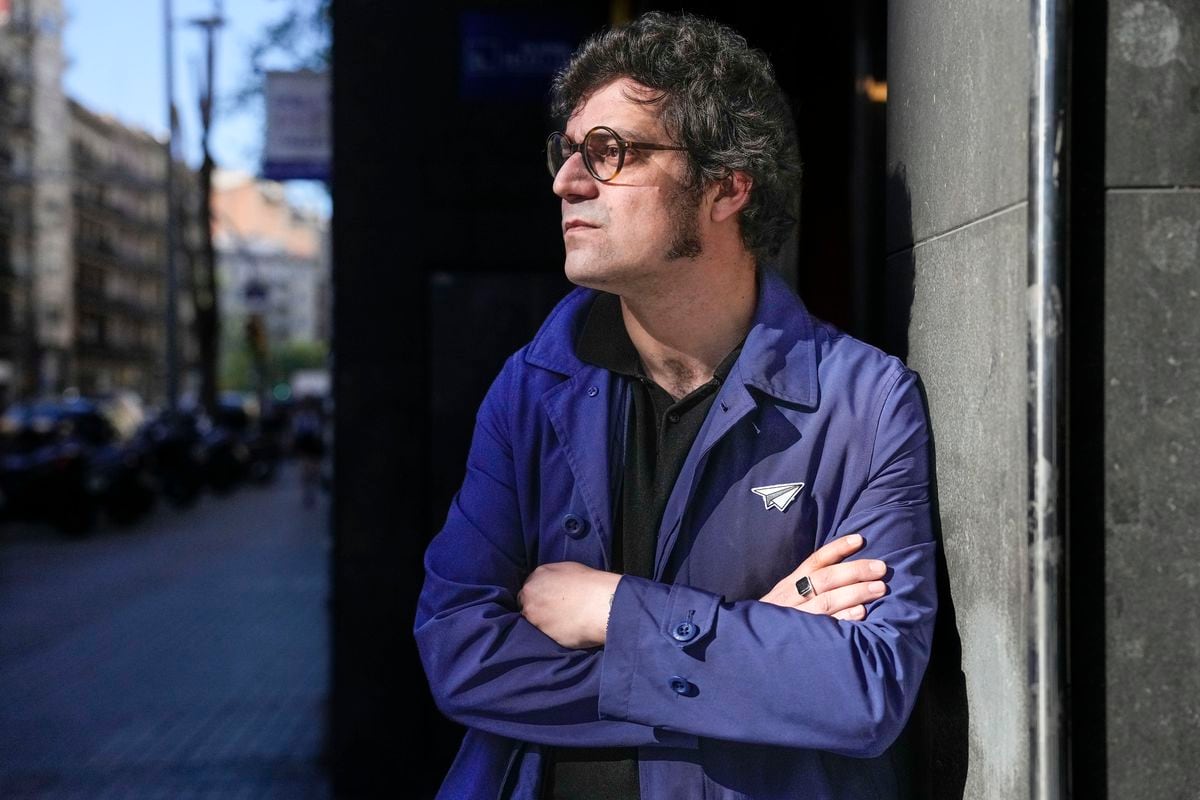A week has passed since the morning of Saturday, June 3, and to the searing pain over the fall of three Faran Brigade fighters in an attack on the southern border, and to the questions about the functioning of the forces, another question is added – what did the incident look like on the other side of the border? Grief swept across the country, obituaries blackened newspaper headlines and a sense of missed opportunity filled the studio space. Meanwhile, a different kind of shock struck Egypt. On the one hand - doubt of deafening silence, on the other - the event evoked dark feelings from the past. The security forces rushed to try to understand what had happened, to communicate with their counterparts on the Israeli side, and finally tried to mediate the complex incident to the hundred million Egyptians. The variant gaps were noticeable from the start.
Contrary to the IDF's announcement, the Egyptian army spokesman did not define the incident as a terrorist attack. A social media post said that a member of the security force was busy chasing drug dealers, crossed the border, and during the exchange of fire, "three Israeli security personnel" and the policeman himself were killed. Almost a denial of the Israeli version. Many thought it was an attempt to cool things down on the Egyptian side. To the chaos in Sinai, the Egyptian public is accustomed. A member of the security forces killed by the IDF is a completely different incident. Wars are not forgotten so quickly, let alone bitter defeats, and certainly if the regime tries to decorate them with annual victory parades. Several days passed, and the exposure of the terrorist's identity destroyed the initial effort to bury the story.
In Israel, the pain over the fall of the fighters is still searing, Photo: Reuters
"Oh Allah, as you have corrected the corrected, correct me and I will become one of them." This Islamic phrase, written by Egyptian terrorist-policeman Mohamed Salah Ibrahim, was repeatedly copied on social media in the hours after his identity was revealed on Monday. The immediate link to soccer star Mohamed Salah may have done its job, but in any case, his residence in Cairo's Ain Shams area has become a focus of attention.
The terrorist, in his 20s, enlisted last year for compulsory service for three years and was stationed on the line in Sinai. Local residents said his father died several years ago, which led him to work for the Public Transport Authority to help support his family. He did not have a college degree and did not finish his high school studies either. He spent more than six months in Sinai, and a former officer praised his performance on Al Jazeera. "He excelled despite the attempts to brainwash the Egyptian people, billions went in vain," the officer said.
Memories from 1985
The official Egyptian media gave few details about the attack and the terrorist, and stuck to the authorities' version. The remaining void was filled by channels hostile to Israel, which saw an opportunity in tragedy. Hisham Sabri, who previously served as an officer in the Egyptian army, ridiculed the delay in the army's announcements: "Someone will tell the military spokesman to wake up the defense minister and Sisi and tell them that the Israeli media has published the identity of the Egyptian soldier named Mohammed Salah, and that they can announce it themselves."
Sisi. Send condolences to the soldiers' families, photo: AFP
Indeed, most of the information flowed from social networks and the Israeli media. This is how the policeman was buried on Monday in the Al Qalyubia district of northern Cairo, with his family receiving condolences at a home in Ein Shams. At the same time, it was reported that the Egyptian security forces had opened an extensive investigation of his relatives and friends to find out whether he belonged to an extremist political or religious organization. However, Egypt denies that Salah was motivated by radical Islamic ideology.
"He didn't engage in any political activity, but he expressed solidarity with the Gaza Strip from time to time whenever there were Israeli strikes, and wrote it several times on Facebook," said a resident of his area. Another resident boasted about the terrorist's actions: "The death of the martyred hero should be celebrated. If he had ammunition with him, he would have killed more. Ben Ein Shams, we are all proud of you, you are the true pride of the Arabs. The heroic martyr fulfilled his duty to defend his land and country. He did his duty against drug smugglers and received no reward from anyone. The state must respect him."
A member of the Egyptian Socialist Movement, Alaa Gamil Gondi, referred to the terrorist as "the new Suleiman Khater," the Egyptian soldier who carried out an attack in 1985 and murdered seven Israeli travelers in Sinai. Khater served in the area and opened fire at the Israelis in Ras Burqah. "The event sends an important message to supporters of normalization with the enemy, according to which it has failed completely at the level of the people. All attempts to blur consciousness and change perceptions have achieved no result," he said.
The conspiracy theories were not long in coming. Egyptian TV host Muataz Matar, who is in exile in London where he left Istanbul, claimed on his online program that Salah's body had not been buried at all. Another Egyptian opposition channel cited sources as saying that the security forces prevented the family from erecting a mourning tent in front of his home. According to the report, it was agreed with the family to hold the mourning after the burial quickly and secretly, and later the security forces prevented people from reaching the house in Ein Shams.
"What is the heroic deed here?"
But there are also other voices in Egypt, and they are more numerous than people think, even if they are not always heard in the mainstream media. Egyptian journalist Sarah Sharif of the newspaper Ad Dostor wrote on Facebook that "there is no Egyptian interest in opening a front or conflict with Israel in the Sinai Peninsula, which is already full of problems of jihadists and drug dealers."
In a post to her tens of thousands of followers, Sharif praised Israel's quiet compared to Egypt's other neighbors, such as divided Libya and Sudan, which is embroiled in an internal military conflict. "Israel has no interest in starting a conflict with Egypt, because this is an achievement it wants to preserve compared to the northern front and the Gaza Strip. Egypt is also the only strong mediator between Israel and the Palestinians in the Gaza conflicts, in addition to economic partnerships and other security coordination," Sharif stressed.
Muhammad Salah, the terrorist who murdered three IDF soldiers. So far there is no official photo of the terrorist, photo: Arab networks
In light of the attack, Egyptian researcher Dalia Ziada expressed disgust and harsh criticism. "People who boast about an attack carried out by one of the Egyptian security guards against Israeli soldiers, who are you? And what exactly is in your interest? Anyone who truly loves Egypt cannot be happy about what happened or celebrate it or treat it as an act of heroism," she wrote.
"First, what is the heroic act of infiltrating from the border of a neighboring country, with which there has been a peace treaty and security cooperation for years, and countless economic interests? What did you accomplish by murdering the soldiers on the border in a treacherous operation for which there is no logical justification, other than the desire of the person who planned it to ignite a conflict between Egypt and Israel or at least to cause a rupture in relations? Or perhaps the attack was motivated by extremist religious elements, such as those calling for the murder of Jews on the basis of their religious identity, which also harms Egypt and completely contradicts its principles.
"Second, the incident may harm Egypt's interests if it is not addressed soon. The best way to contain the incident is to conduct a transparent investigation under the supervision of both parties, and to take all necessary steps to prevent a recurrence of the incident. This is what the Egyptian defense minister promised his Israeli counterpart in their phone conversation, hours after the incident."
"The unprecedented cooperation in recent years," Ziada added, "is one of the most important factors in Egypt's success in getting through the difficult period it is experiencing between the war on terror and enormous economic challenges. Between 2013 and 2015, Hamas elements infiltrated Sinai and established terrorist organizations there that later pledged allegiance to ISIS. Israeli forces alongside Egyptian forces fought terrorism in Sinai. At a time when the whole world stood against Egypt after the fall of the Muslim Brotherhood, and there were widespread calls in the West to impose sanctions and boycott it diplomatically and economically, senior Israeli officials went around international forums to defend the modern Egyptian state. They said clearly, and I heard it myself, that 'Sisi's security and stability are essential to Israel's security and stability.'"
Ziada concludes: "Israel is not an enemy of Egypt, but one of the countries that stood by it during the difficult times it went through, and there is no reason to ignite a conflict with it. Whoever does so harms Egypt's interests. May God have mercy on the victims of the incident and protect Egypt and Israel and their security."
Unfortunately, the researcher had to deal with an online attack that included threats and harsh cursing. "Since I condemned the shooting at the border on Saturday, I have received death threats and insults (using sexual language) from Egyptians and Palestinians (most of them men)," Ziada wrote on Twitter, attaching a screenshot of one of the messages: "This guy vowed to buy a gun, find me and slaughter me in the middle of Tahrir Square!"
A product of the education system
"It is interesting to follow on the one hand the official response, and on the other hand the populist responses, which see the terrorist as a hero, and finally the smaller wave of Egyptian reactions condemning the terrorist," explains Dr. Ofir Winter, a senior researcher and expert on Egyptian affairs at the Institute for National Security Studies (INSS).
There are those who see the attack and the reactions to it in Egypt as a natural and very problematic result of ongoing incitement and hatred. Others isolate it as an extraordinary event on 44 years of stable peace, strategic security coordination and economic cooperation on gas and energy issues. There is truth in both approaches – and this contradiction is exactly the essence of what is called a cold peace," Winter says. "There was the incident in Ras Burqah in 1985 in which an Egyptian soldier named Suleiman Khater shot dead seven Israelis. Another Egyptian climbed the embassy building in 2011 and removed the Israeli flag. He also became a national hero and they gave him an apartment.
"On the other hand, now there is a different attitude towards the shooter from the regime. Regime spokesmen are talking about an Egyptian policeman, whose name has not yet been officially released, who conducted a manhunt that became complicated for drug dealers, which led to the accidental killing of himself and Israeli soldiers. The Egyptians express condolences to the victims on both sides, but do not take responsibility or apologize. In terms of shaping public opinion, the regime has several goals: first, to downplay the issue and push it to the margins of newspaper headlines. We are trying to return to routine as soon as possible, both in relations with Israel and in Egypt.
"Second, to prevent the shooter from becoming a national hero like Suleiman Khater, who could serve as a symbol and inspiration for other terrorists. Many Egyptians inside and outside the country did not buy the official narrative, but rather relied on the Israeli investigation. They tried to strengthen the image of the terrorist as a hero and a "martyr" who killed the soldiers, and criticized the announcement by the Egyptian army spokesman who conveyed condolences to Israel. Some spread conspiracy theories about Israeli soldiers who allegedly coordinated with the smugglers. I think that many of these reactions come from outside Egypt, from elements that have an interest in damaging the image of the regime and peace with Israel – an Egyptian opposition in exile or the Muslim Brotherhood, who are trying to embarrass the military regime.
"The third goal is a point that greatly worried the regime, and that is how to preserve the pride and honor of the Egyptian army, as it is in full control of the situation. The army in Egypt is the government, and the moment he is presented as unable to control the conduct of the ordinary soldier, it may seriously damage his image. So they tried to portray the policeman as a patriot who supposedly defended the border of the homeland and dealt with drug smugglers. The army in Egypt is an almost sacred institution and its functioning is not subject to public scrutiny."
At the same time, slowly and quietly, there is also an attempt by the Egyptian regime to change its attitude toward Israel and the Jews for the better. Winter mentions a comprehensive study he led in collaboration with the IMPACT-se Institute, which traced the Egyptian education system. "The most interesting finding was in textbooks for first through fifth grades, which have been rewritten in recent years, and no longer include the anti-Semitic discourse we used to see in the past. Even the maps have improved. Israel still does not appear on them by name, but remove the name of Palestine. The early classes are the most important in shaping a student's consciousness, and there the situation has improved dramatically. If it continues like this in the other age groups, it is hoped that in the long run a generation will emerge with different perceptions than the terrorist.
"In fact, this terrorist can be seen as a product of the old education system in Egypt. The recent reforms are too little, too late for those killed, but one can hope that the current event will make it clear to Egypt's decision-makers that they must accelerate them. The attack demonstrated the danger of the intolerable gap between the importance of peace for both countries and the negative perceptions that are still prevalent in public opinion and must change."
Wrong? We'll fix it! If you find a mistake in the article, please share with us

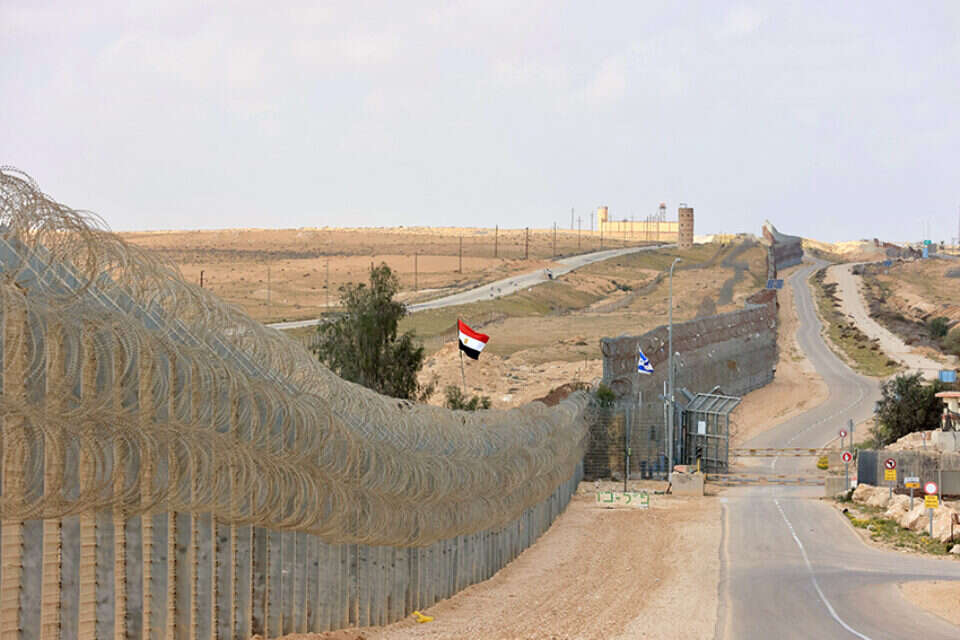





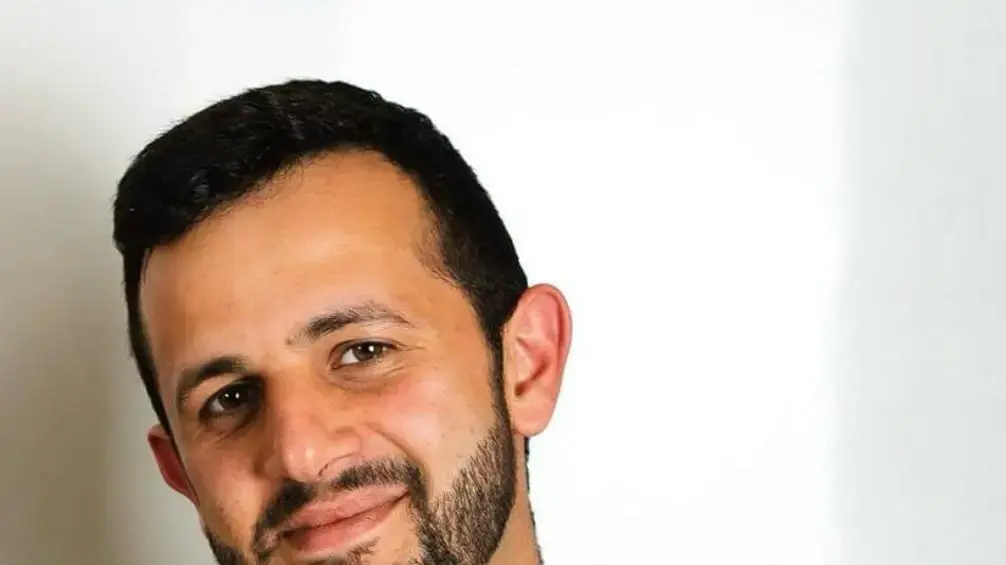
/cloudfront-eu-central-1.images.arcpublishing.com/prisa/2MPOQCRTTCJVHEV6VONEC6SDGY.jpg)
